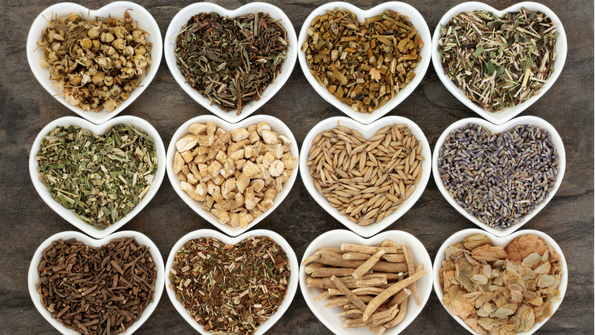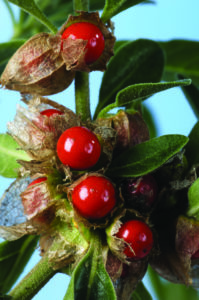
Ever hear of “adaptogens”? Herbalists use the word to describe an increasingly popular class of plants that, as the name suggests, help you adapt. Adapt to what?
“These plants help us to adapt to all forms of physical or mental stress,” says Chris Kilham, aka the “Medicine Hunter,” who travels to the far reaches of the planet in search of novel and indigenous botanicals. “The word ‘adaptogen’ is a natural products–insider kind of terminology, but it does give people a clue as to the activity of this category—‘I can adapt to lifestyle conditions’—and that’s beneficial.”
Medical herbalist Mary Bove, ND, who is chief formulator at Gaia Herbs, describes the totems of adaptogens. “They are nontoxic in the body,” she says. “They move the body to homeostasis, to equilibrium.”
Adaptogens have an almost magical ability to perk you up when you’re tired or relax you when you’re stressed. And although you may not have heard the word adaptogens, you might be using them. Botanicals in this class include ashwagandha, rhodiola, schisandra, holy basil and maca. These days, they’re all the rage. Stress, sleep, vitality, energy—pharmaceutical drugs can’t touch these concerns because they’re not officially diseases, but it’s not overstating to say that the growth of these modern lifestyle maladies is driving many to seek safe solutions.
“Study after study shows Americans are living more stressful lives than ever before,” says P.K. Davé, president of Nature’s Formulary, which sells Ayurvedic supplements, including adaptogens and other Indian products. “As a result, stress-related health conditions have mushroomed: hypertension, gastrointestinal diseases and metabolic diseases. People frequently experience more than one condition simultaneously.”
Ashwagandha: A key ingredient
Ashwagandha remains the principal adaptogen ingredient. Traditionally, ashwagandha roots have been used for their active compounds, called withanolides.
 “If you look at the books on ashwagandha,” says Anand Bodapati, science director for KSM-66, a leading ashwagandha ingredient used for supplements, “it does 30 things. We focus on four areas—two for the mind, two for the body.”
“If you look at the books on ashwagandha,” says Anand Bodapati, science director for KSM-66, a leading ashwagandha ingredient used for supplements, “it does 30 things. We focus on four areas—two for the mind, two for the body.”
The company has conducted research on stress relief and brain health, as well as sports performance and sexual health. “The running theme,” says Bodapati, “is focusing on things that may affect your productivity in life.”
For example, in a study of 64 people with a history of chronic stress, 300 mg twice daily of the KSM-66 type of ashwagandha for 60 days led to a big drop in levels of cortisol (the “stress hormone”), which helped participants deal with stress better and report a better quality of life.
Many adaptogens are grown in India as part of the subcontinent’s Ayurvedic medical tradition. Ayurveda itself has been slow to catch on in America, but some of its flagship herbs like curcumin and ashwagandha have become quite popular. When you’re shopping for adaptogens in the store, you’ll likely have to search the back panel for the word. Instead, look at the bold print on front for words like “adrenal,” “stress,” “energy,” “anxiety” or “vitality,” or for the name of the single herb itself.
Everybody, it seems, wants a little more balance in their overdrive lives these days. To help your body adapt to lifestyle stresses, try an adaptogen.
